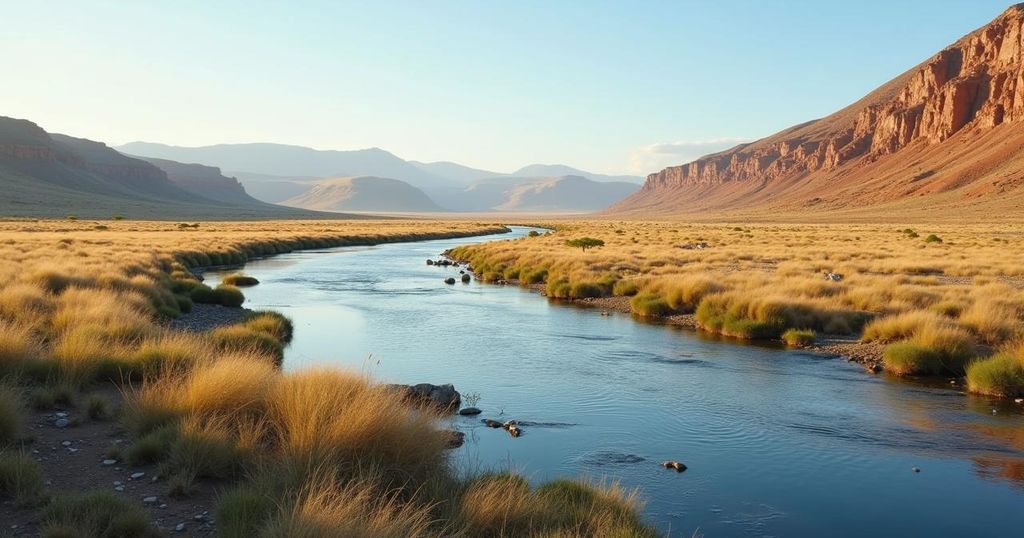South Africa and Namibia are in discussions to resolve a dispute regarding the Orange River’s border demarcation, which has implications for water rights and resource management between the two nations. A 1890 treaty claims the border lies along the river’s northern bank, while Namibia seeks to redefine it to the river’s center. Following recent negotiations, both countries expressed optimism about arriving at a collaborative resolution, particularly in the face of climate-induced water scarcity concerns. This dialogue comes amid larger regional tensions over water resource management.
South Africa and Namibia have engaged in discussions to address a longstanding dispute over the rights to the Orange River, which serves as a crucial water source and defines the border between the two nations. The conflict stems from a treaty signed in 1890 during colonial times, which states that the river’s northern bank represents the international boundary, hence under South African governance. However, Namibia seeks to redefine this border to the river’s midpoint. The negotiations, involving representatives from both countries, expressed optimism about reaching a resolution based on cooperation, transparency, and trust. Both nations are particularly concerned about the implications of climate change on their water supplies, as they grapple with scarce resources. Additionally, Namibia has voiced anxiety regarding South Africa’s plans to draw more water from Lesotho, citing potential adverse effects on the Orange River’s flow. Despite previous regional tensions, such as Namibia’s disputes with Botswana over river islands, the joint approach taken by South Africa and Namibia signifies a positive step toward amicable resolution. Water Affairs Minister Calle Schlettwein of Namibia emphasized the urgency of investing substantially to secure the country’s water resources amid its arid environment. This commitment is juxtaposed against other contentious regional water disputes, such as the conflicts surrounding the Nile River due to Ethiopia’s construction of a large dam.
The Orange River serves as a critical water supply for both South Africa and Namibia, particularly in light of pressing water scarcity exacerbated by climate change. The historical agreement from 1890 has been a source of contention as Namibia contemplates a border shift to better reflect the river’s central channel. During recent negotiations, both nations indicated their willingness to collaborate effectively, underpinned by mutual trust. These talks occur against the backdrop of broader regional water management challenges, highlighting the urgent need for sustainable solutions to water security issues in Southern Africa.
The recent negotiations between South Africa and Namibia represent a significant step toward resolving their differences over the Orange River boundary, emphasizing collaboration and goodwill. The outcome of these discussions could pave the way for enhanced cooperation and stability in a region struggling with water scarcity. With Namibia’s pressing need for investment in water sustainability, it is critical for both nations to find common ground in their resource management strategies. This proactive diplomacy contrasts sharply with ongoing conflicts elsewhere in the region, thus underscoring the importance of amicable international relations in managing shared natural resources.
Original Source: www.engineeringnews.co.za






